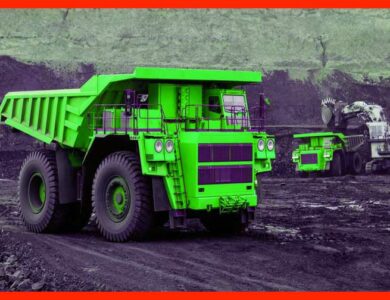
The Impact of Heavy Machinery: Revolutionizing Industries and Enhancing Efficiency
Heavy machinery has played a significant role in revolutionizing various industries, enhancing productivity, and streamlining operations. From construction to agriculture, mining to transportation, and manufacturing to production, these powerful machines have reshaped the way we work. In this article, we will explore the impact of heavy machinery across different sectors, highlighting its advantages, challenges, and future prospects.
1. Heavy machinery
Heavy machinery refers to large, powerful equipment used in various industries to perform tasks that would otherwise be challenging or impossible for human labor alone. These machines have become an integral part of our modern industrial landscape, enabling faster, safer, and more efficient operations.2. Evolution of Heavy Machinery
The development of heavy machinery can be traced back to the Industrial Revolution, where manual labor was gradually replaced by mechanized systems. With advancements in technology and engineering, heavy machinery evolved to meet the growing demands of industries worldwide.3. Applications in Construction
In the construction industry, heavy machinery such as excavators, bulldozers, and cranes have transformed the way buildings and infrastructure are constructed. These machines enable faster excavation, precise grading, heavy lifting, and efficient material handling, significantly reducing construction time and costs.4. Agricultural Advancements
Heavy machinery has revolutionized agriculture by automating various tasks, improving crop yield, and minimizing manual labor. Tractors, combine harvesters, and irrigation systems have enabled farmers to increase productivity, optimize resource utilization, and enhance overall efficiency in the field.5. Mining and Extraction
The mining industry heavily relies on advanced machinery for excavation, drilling, and transportation of minerals. Large haul trucks, drilling rigs, and conveyor systems have made mining operations safer, more productive, and environmentally sustainable.6. Transportation and Logistics
Heavy machinery plays a crucial role in transportation and logistics. Trucks, ships, and trains equipped with specialized machinery enable the efficient movement of goods across long distances. Forklifts and cranes facilitate the loading and unloading of cargo, ensuring smooth supply chain operations.7. Manufacturing and Production
In manufacturing and production facilities, heavy machinery such as robotic arms, CNC machines, and assembly lines have significantly increased output, precision, and quality control. These machines automate repetitive tasks, resulting in faster production cycles and improved product consistency.8. Advantages of Heavy Machinery
The utilization of heavy machinery offers several advantages to industries and businesses. These include:- Increased productivity and efficiency
- Reduced labor costs
- Enhanced worker safety
- Ability to tackle complex tasks
- Improved accuracy and precision
- Faster project completion
- Streamlined operations and logistics
9. Challenges and Safety Considerations
While heavy machinery provides numerous benefits, it also presents challenges and safety considerations. Proper training, maintenance, and adherence to safety protocols are essential to mitigate risks associated with operating heavy machinery. Ensuring the well-being of workers and preventing accidents should always be a top priority.10. Technological Innovations
Technological advancements continue to shape the heavy machinery landscape. Automation, artificial intelligence, and Internet of Things (IoT) integration have led to the development of smart machinery that can optimize performance, monitor equipment health, and enhance overall efficiency. These innovations are poised to revolutionize industries even further.11. The Future of Heavy Machinery
Looking ahead, heavy machinery is expected to continue its evolution, embracing more sustainable practices and further reducing environmental impact. The integration of renewable energy sources, improved fuel efficiency, and advanced data analytics will drive the future of heavy machinery, creating a more sustainable and efficient industrial ecosystem. Heavy machinery has transformed industries by improving productivity, efficiency, and safety. From construction and agriculture to mining and manufacturing, these powerful machines have become indispensable in our modern world. With ongoing technological advancements, heavy machinery will continue to revolutionize industries and pave the way for a more efficient and sustainable future.FAQs:
Q1: How does heavy machinery benefit the construction industry? A1: Heavy machinery in construction enables faster excavation, precise grading, heavy lifting, and efficient material handling, reducing construction time and costs. Q2: What are the safety considerations when operating heavy machinery? A2: Proper training, maintenance, and adherence to safety protocols are crucial to mitigate risks associated with operating heavy machinery. Q3: How has heavy machinery revolutionized agriculture? A3: Heavy machinery in agriculture automates tasks, improves crop yield, optimizes resource utilization, and enhances overall efficiency in the field. Q4: What role does heavy machinery play in transportation and logistics? A4: Heavy machinery facilitates the efficient movement of goods, including loading and unloading cargo, ensuring smooth supply chain operations. Q5: What does the future hold for heavy machinery? A5: The future of heavy machinery lies in sustainable practices, integration of renewable energy sources, improved fuel efficiency, and advanced data analytics.
URL Copied



